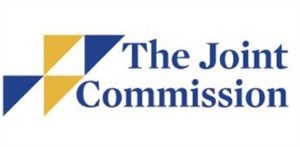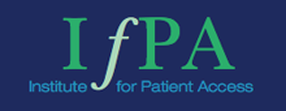Are the safety enteral feeding systems accurate enough for neonatal drug administration? By Dr O’Mara
Dr O’Mara held a symposium at the joint European Neonatal Societies Virtual Congress in September 2021. She addressed an important topic in neonatology: are the safety enteral feeding system accurate enough for neonatal drug administration? It is a key question for premature babies in NICUs, Dr O’Mara presented the results of her studies.Dr O’Mara held a symposium at the joint European Neonatal Societies Virtual Congress in September 2021. She addressed an important topic in neonatology: are the safety enteral feeding system accurate enough for neonatal drug administration? It is a key question for premature babies in NICUs, Dr O’Mara presented the results of her studies.
The risks of using ENFit in Neonatology were discussed at the last NICU Leadership Forum in Florida
At the 22nd edition of the NICU Leadership Forum at Ponte Vedra Beach in April 2018, a group presentation was made by Heidi McNeely (neonatology nurse, Colorado), Susan Hepworth (director of the National Coalition for Infant Health - NCfIH) and Keliana O'Mara (pharmacist, Florida) to inform about the risks of using the ENFit system in neonatal services.
A video summary was produced showing that:
- The hub of the conventional ENFit or “Low Dose Tip” syringe is difficult to clean and increases the risk of infection and dosage inaccuracy.
- The workload is increased for nurses and pharmacists.
- Dosage inaccuracy may lead to overdosage and adverse drug reactions.
National Coalition for Infant Health (NCfIH) has written a letter that warns about the use of the ENFit system in Neonatology.
In late 2017, NCfIH wrote a letter to The Joint Commission outlining its concerns and the dangers of using the ENFit system on newborns.
In particular, the organisation stressed the importance of administering small volume drugs very precisely in Neonatology.
However, the hub of the conventional ENFIT or Low Dose Tip syringe can trap an excess of medicinal fluid which involuntarily causes an increase in the dose delivered when the syringe is connected to the hub of the feeding tube. This exposes babies to a risk of daily overdoses that can lead to adverse reactions or serious complications.
The French Society of Neonatology (SFN) recommends a dedicated safety enteral system for neonates
In their newsletter of March 2016, the SFN warns French Neonatologists about the dose inaccuracy risk of ENFit™ and recommends a neonatal enteral feeding system with the following features:
Safe
- Incompatible with Luer and other small-bore connectors used in other applications (e.g. IV)
- Allowing a reliable connection between components without leakage or cracking
Accurate
- Having an internal dead space less than 0.1ml
- Generating a volume displacement during connection less than 0.05ml
Size adapted to preterm infants
- Incorporating the smallest possible connectors
- Incorporating the lowest possible weight connectors
Download the SFN Newsletter (in French)
Download the summary (in English)
The ENFit system, which aims to prevent the risk of connection errors through the ISO 80369-3 standard, thus gives rise to new challenges.

The Joint Commission responded to NCfIH and reassured the health professionals.
In its response, The Joint Commission assured that it does not impose any use in terms of medical devices or any other technologies. Health organisations are free to determine which products are best for their patients. This allows healthcare facilities to continue to protect their most vulnerable patients from the risks of incorrect dosage, using devices of their choice.
NCfIH welcomed this response very positively.
Download The Joint Commission’s letter

Institute for Patient Access (IfPA) has also denounced dangers caused by the ENFit system.
Suzanne Staebler, a Neonatal Nurse in Atlanta who has been practising for 25 years, affirms that healthcare professionals face new challenges with the ENFit connector and the Low Dose Tip syringe:
- For neonatal and paediatric patients, this design does not guarantee the dossage accuracy required for treatments.
- Staff are obliged to carry out additional steps in their job, namely, cleaning the hub of the ENFIT Low Dose Tip syringe to eliminate any excess medication, which is not always easy.
Read related articles on the IfPA website:
- “Tubing Mix-ups Pose New Dangers for Infants”
- “Infant Health Summit Spotlights Diversity and Access Disparity”
- “A victory for NICU patient Safety”

The French Society of Neonatology (SFN) recommends the use of a secure system exclusively dedicated to the enteral feeding of newborns.
In its newsletter of March 2016, the SFN warns French neonatologists against the risk of inaccurate dosage with the ENFit system and recommends the use of a neonatal feeding system with the following characteristics:
Secure (cannot be mistakenly connected to other applications).
Accurate (generating a volume displacement of less than 0.05 ml during connection)
Size adapted to premature patients
Download SFN’s original newsletter.
Other professionals are worried
- The company Becton, Dickinson and Company (BD) has warned about the risks associated with the design of females ENFit and Low-dose tip (LDT) syringes.
See BD’s letter dated on October 2015 and BD’s letter dated on July 2016
- The Canadian Standards Agency Working Group (CSA Z298) has identified serious shortcomings in ISO 80369-3 and voted against this draft standard. One of the technical reasons for this non-support is the inaccuracy of the ENFit system.
Visit CSA’s website


